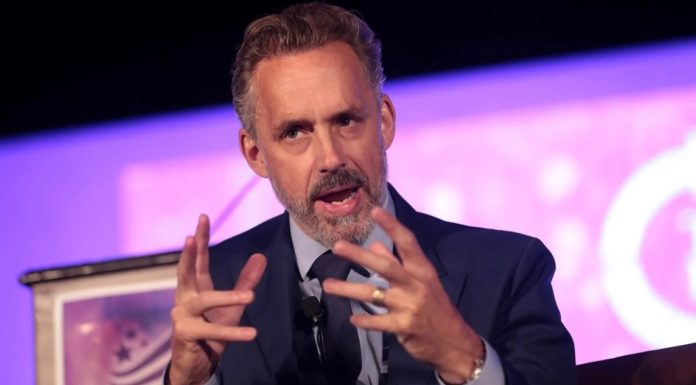(Patrick Carroll, Foundation for Economic Education) On January 3, Jordan Peterson used his recently-reinstated Twitter account to alert the world of a new development in his seemingly-endless battle with mainstream institutions.
“The Ontario College of Psychologists has demanded that I submit myself to mandatory social-media communication retraining with their experts for, among other crimes, retweeting Pierre Poilievre and criticizing Justin Trudeau and his political allies,” Peterson wrote.
BREAKING: the Ontario College of Psychologists @CPOntario has demanded that I submit myself to mandatory social-media communication retraining with their experts for, among other crimes, retweeting @PierrePoilievre and criticizing @JustinTrudeau and his political allies.
— Dr Jordan B Peterson (@jordanbpeterson) January 3, 2023
According to Peterson, the College’s actions were prompted by roughly a dozen complaints submitted over the past four years. Notably, none of the complaints were brought by people Peterson interacted with in a clinical context. Rather, they seem to be motivated by political disagreements and only feature vague accusations of harm resulting from some of Peterson’s social media rhetoric.
“What exactly have I done that is so seriously unprofessional?” Peterson asks in a National Post column. “It is hard to tell with some of the complaints (one involved the submission of the entire transcript of a three-hour discussion on the Joe Rogan podcast), but here are some examples.”
He goes on to list some of the accusations of unprofessional conduct levied against him, which include retweeting a comment about the unnecessary severity of the Covid-19 lockdowns, criticizing Justin Trudeau and other politicians, and making a joke about the prime minister of New Zealand.
Peterson has indicated he is eager to release all the details of the accusations so the public can see the evidence and judge for themselves who is in the right, but the College has thus far not given permission to this effect.
To atone for his errors, Peterson was told he needs to take a mandatory social-media retraining course at his own expense. The course will be considered finished when the College’s experts are satisfied with his progress.
Naturally, Peterson refused to take the course. As a result, he now faces a mandatory public disciplinary hearing and the possible suspension of his clinical license. If he loses his license, he will be barred from practicing clinical psychology in Ontario and from representing himself as a psychologist.
A Tool for Censorship
This isn’t the first time the licensing system has been weaponized against professionals with unpopular views. In an infamous 2021 statement from the College of Physicians and Surgeons of Ontario—the provincial regulatory body for medical doctors—doctors were effectively told to get on board with the official Covid narrative or risk losing their license.
“Physicians hold a unique position of trust with the public,” the statement reads, “and have a professional responsibility to not communicate anti-vaccine, anti-masking, anti-distancing and anti-lockdown statements and/or promoting unsupported, unproven treatments for COVID-19. Physicians must not make comments or provide advice that encourages the public to act contrary to public health orders and recommendations. Physicians who put the public at risk may face an investigation by the CPSO and disciplinary action, when warranted.”
These were not empty threats. One Ontario physician, Dr. Patrick Phillips, had his license suspended in May, 2022 for “inappropriate” COVID-19 treatments and advice.
As these and many other examples make clear, the licensing system can be a powerful weapon for censorship. And it’s no mystery why. Professionals need licenses to legally practice their profession. Even if there are relatively few suspensions in practice, the mere fact that your license could be suspended has a huge impact. Self-censorship is likely rampant in fields like law, medicine, and psychology on account of this threat.
The Underlying Problem: Government Licensing
Though the administrators of licensing systems certainly carry much of the blame for intimidating professionals into conformity, the root of the problem is the licensing regulations themselves. If these were private clubs that were threatening to revoke membership, it wouldn’t really matter. The reason this is such a big deal is that these bodies are empowered by the government to strip professionals of their livelihoods. If licensing laws were repealed, these regulatory bodies would have no teeth, and thus no ability to threaten and coerce professionals.
The objection, of course, is that we need licensing to protect consumers from unethical and incompetent practitioners. But why should the government get to decide who is unethical and incompetent? Why not you, the consumer?
“Consumers are ignorant,” we are told. “They need an expert to help them verify competence.”
Fair enough, but that doesn’t mean the government needs to get involved. There’s an alternative system that removes the coercive element while still allowing consumers to verify that the services they buy are trustworthy. That alternative is free-market certification.
…
The point is that consumers, not bureaucrats, should determine whose services will be bought on the market. And while it’s true that consumers generally know little about the field in question, professional associations, consumer reviews, and word of mouth are beyond sufficient to provide them with the necessary information to judge whether a given practitioner will be good at their job.
Peterson’s ability to practice psychotherapy should depend on his track record and reputation, not on the whims of bureaucrats. The same goes for every other professional, no matter their field.



